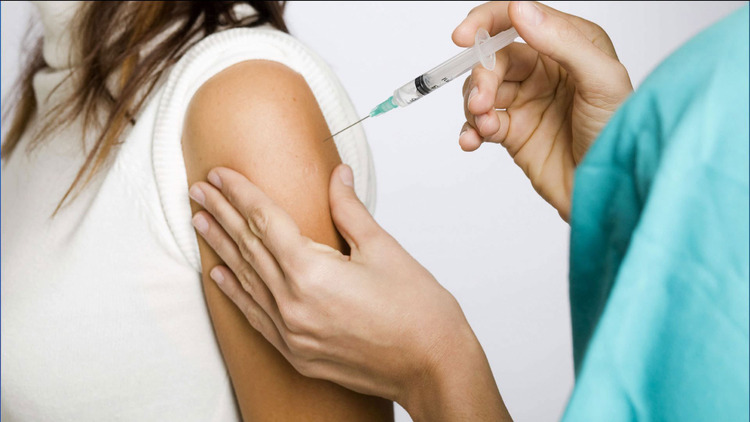Sexual health doctor EMMA BOULTON writes about HPV Vaccination, HPV and the options available to lower the risk of catching it, and managing it if infected …
What is HPV?
HPV stands for human papillomavirus. HPV is a very common sexually transmitted infection with four out of five people having HPV at some point in their lives. HPV can infect both women and men. HPV is spread through skin to skin contact including genital skin contact and enters the body through tiny breaks in the skin.
HPV usually causes no symptoms and is usually spread without the person even knowing it. Whilst the HPV virus like other viruses usually goes away by itself some women get persistent infection and these women are at risk of developing cervical cancer.
There are over 200 types of cervical cancer and about 40 of these affect the genital tract. Some HPV types can cause cervical cancer and some HPV types can cause genital warts. HPV types are considered either ‘low risk’ or ‘high risk’. Low risk cause genital warts and high risk can cause cervical cancer.
Condoms offer some but not total protection from HPV, as not all of the genital skin is covered. Condoms do offer protection from unwanted pregnancy and other STIs.
What is the HPV vaccination?
The vaccine, called Gardasil®, protects against HPV types 6,11,16,18. Another vaccine called Cervarix® was protects against HPV types 16 and 18. The vaccination is given as 3 injections over 6 months.
The vaccine does not contain any live virus and can’t cause cancer or any other diseases. The vaccine is made of a protein that looks like the outside of the real virus.
When you have the vaccine, your body makes antibodies which it uses to fight the real virus if you’re ever exposed to it.
Do I still need to have Pap smears?
If you have completed the course of HPV vaccination either before or after you were first sexually active you still need to have pap smears.
Abnormal Pap tests can occur even if you’ve had the cervical cancer vaccine. This is either because:
- The vaccine was given after you had already been exposed to HPV through sexual activity with a person who had HPV.
- It was caused by an HPV type that the vaccine does not protect you against. The vaccine protects you against the HPV types 16 and 18 which cause 70% of cervical cancers. That means 30% of cervical cancer is cause by other types.
Abnormal Pap tests cannot be caused by the vaccine.
Is there treatment for HPV?
There is currently no treatment available for HPV. In most cases your own immune system will clear (get rid of) the HPV.
Most people will not know they have HPV unless they have a Pap smear that detects abnormal cells on the cervix caused by HPV because it does not cause symptoms or if they get genital warts.
Genital warts are caused by low risk types of HPV which do not cause cervical cancer and can be treated by your doctor or at a sexual health clinic.
Emma Boulton is a Sydney sexual health doctor and co-director of Gynaecare Health Clinic in Artarmon on Sydney’s lower north shore. For more info check out www.choicessexualhealth.com














